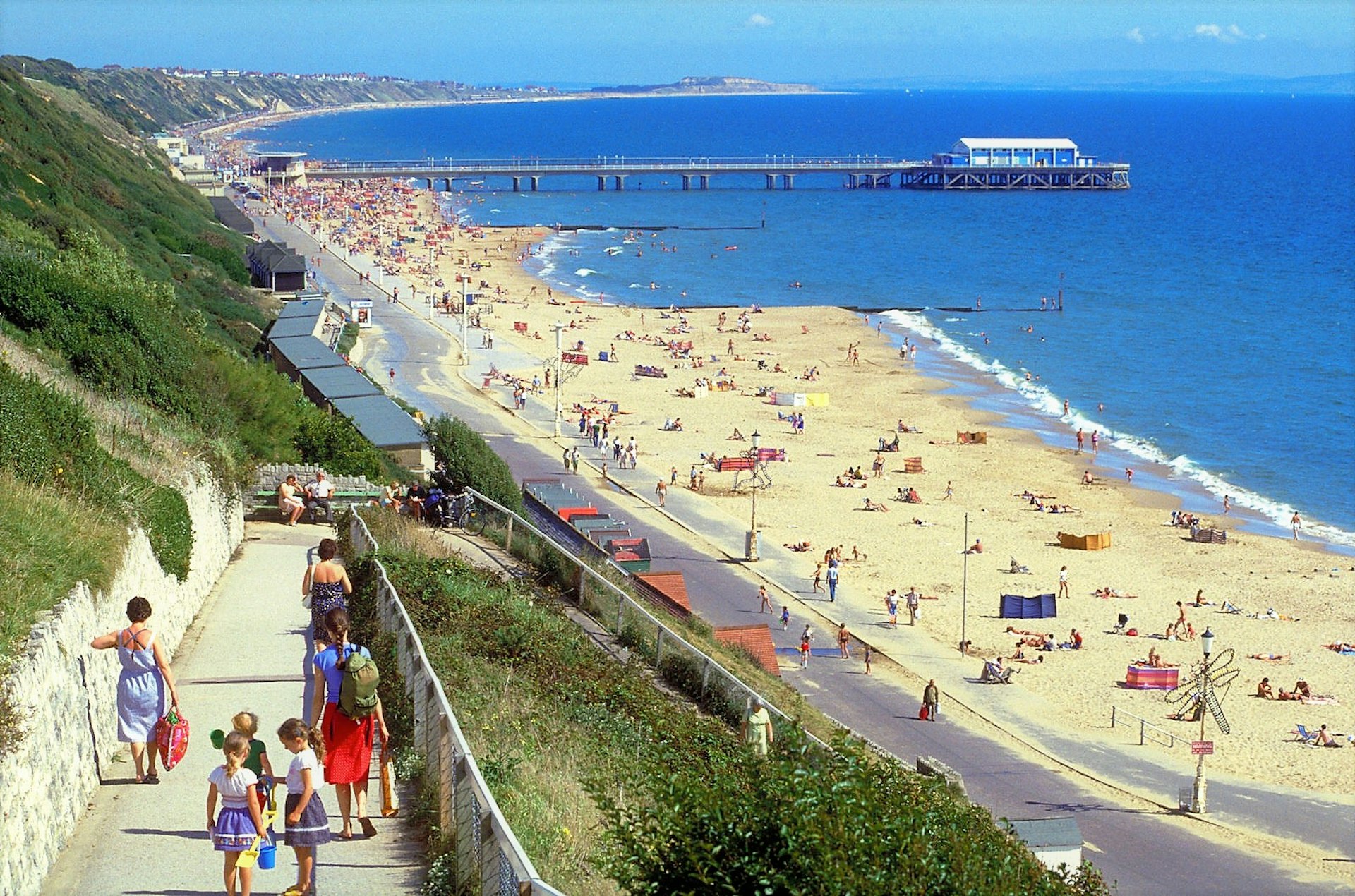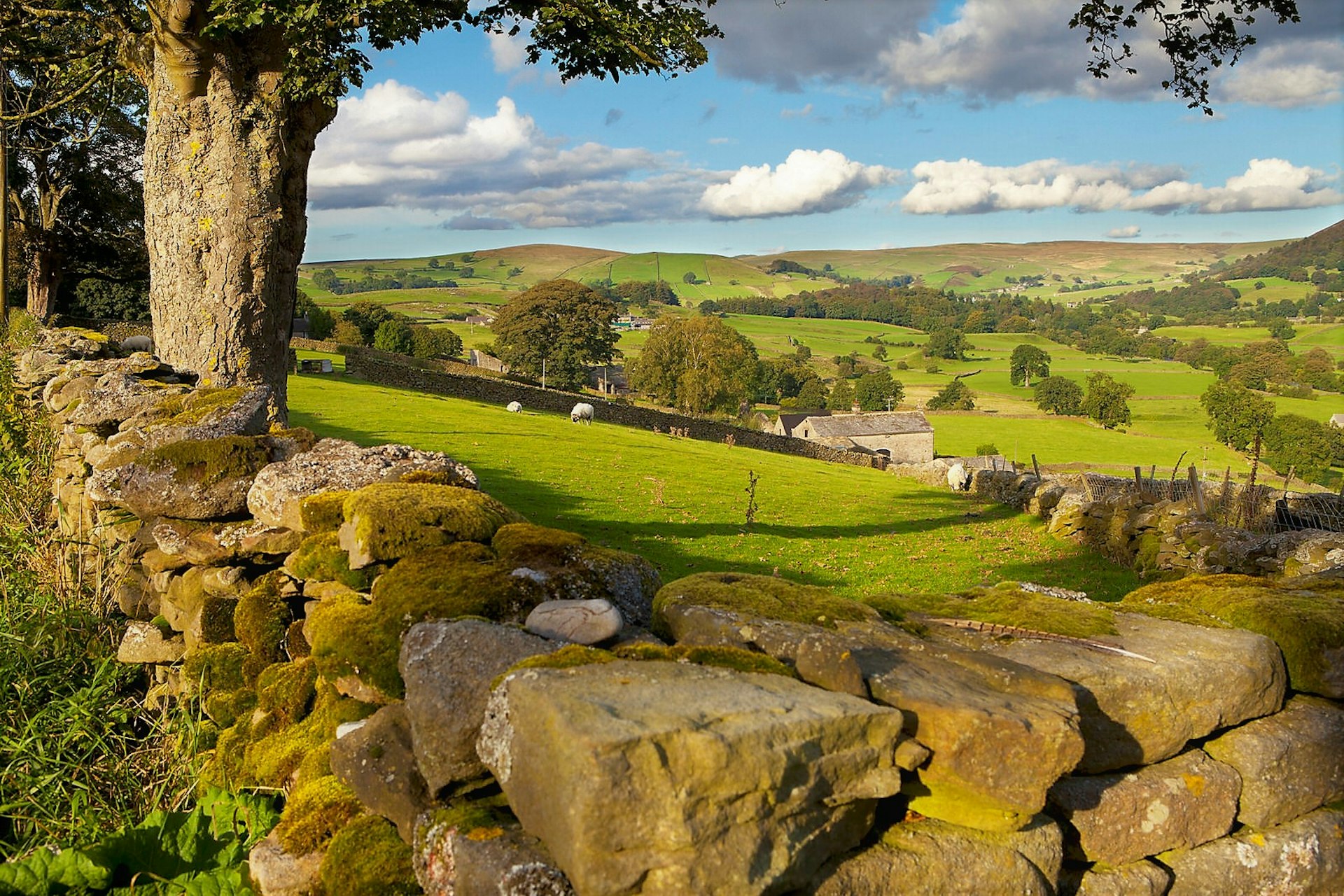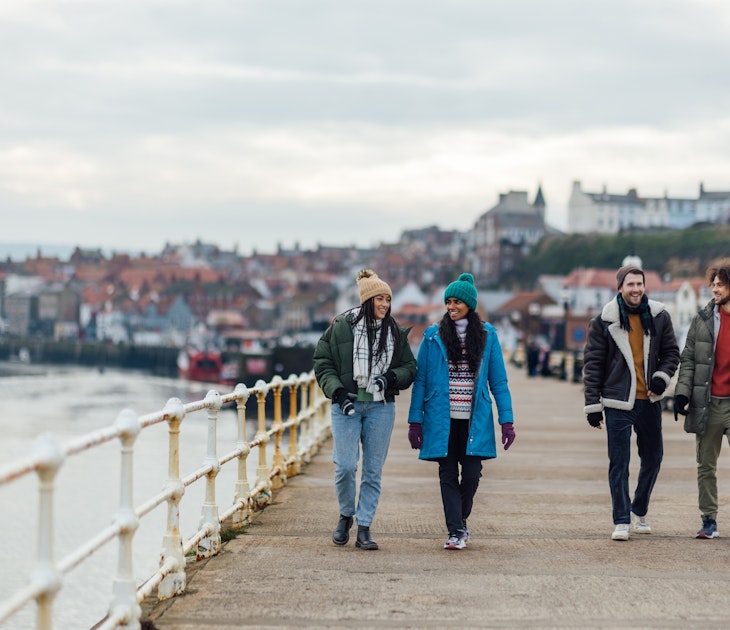England is a spectacular showcase of some the world's finest attractions, both natural and manmade. For many with limited mobility or another disability, the opportunity to visit these wonders can prove difficult though, so we’ve brought together our recommendations for ten of the most accessible places in the country that tick the ‘wonderful’ box and can be enjoyed by everyone.

Eden Project, Southwest England
As the world's largest indoor rainforest, you’d expect the Eden Project in Cornwall to house rare and exotic plant life. And it does, in a superb setting, two huge biomes (greenhouses) in an old clay pit. Along with its botanical collections and grand design though, it also boasts a variety of accolades including the Inclusive Tourism Award by Visit England, and is keen to welcome those with disabilities, offering free admission to carers, several manual and powered wheelchairs, and excellent toilet facilities. Although varying gradients and levels make certain parts of the buildings more difficult for wheelchair navigation, there are three main routes that allow all visitors to enjoy the displays, plus a hearing loop system, audio tours and a Braille guide book. One of the Eden Project's most loved attractions is the Rainforest Canopy Walk, which provides the opportunity to experience the tropical climate and is completely accessible except for the Rope Bridge. There’s even an ice rink that welcomes wheelchair users and a zip wire for visitors with disabilities, both of which are open during selected dates throughout the year (the latter can be specially opened an hour earlier for disabled visitors if requested before arrival).
Croome Court, Central England
Dating back to the 18th century and boasting landscapes by England’s most famous garden designer, Capability Brown (his first major commission), Croome Court in Worcestershire is a delight. Cared for by the National Trust, the property is a good example of how the organisation makes previously inaccessible buildings accessible. The Trust has appointed an Equality Specialist and works closely with disabled visitors and activists to ensure as many of their properties are as visitor-friendly as possible. With this aim in mind, Croome Court offers many facilities, from an adapted shuttle bus service and Braille guides, to a 'stairclimber', which enables those in manual wheelchairs to visit three levels of the property, and hard paths through the gardens that make touring Brown’s designs easy for everyone.

Life Science Centre, Northeast England
If you are looking for an accessible, educational day out, the Life Science Centre in Newcastle offers some of the very best facilities for those with limited mobility. With wheelchair access throughout, everybody can enjoy the various exhibitions, including an in-depth exploration of our solar system. Carers are admitted free of charge and the building’s layout is nice and level, plus there are lifts to the different floors as well as designated spaces in the Planetarium and Science Theatre. The Science Centre also provides for those with limited hearing and visual abilities with a hearing loop and printed guides.
The New Forest, Southern England
Located in southern England, the New Forest was made a royal hunting ground by William the Conqueror almost a thousand years ago. With its gentle landscapes and rich wildlife it’s not hard to see why it got the monarch’s seal of approval. Today, the New Forest is as appealing as it was all those years ago, combining a variety of rare trees, open spaces and the iconic New Forest pony. Keen for the national park to be open to all, the Forestry Commission has done much to make the area accessible, with parking and toilet facilities, along with accommodation nearby that caters to travellers with disabilities. Of course, the best way to enjoy the New Forest is through exploration and much effort has been taken to provide suitable routes to explore. Try the historic trail around the Rufus Stone, said to mark the exact spot William II, also known as Rufus, was killed. Or take an amble to the Knightwood Oak which is thought to be the oldest oak tree in the country.

Bournemouth beaches, Southern England
One of the favourite pastimes of the English is a trip to the seaside, but for those who require wheelchairs or struggle to walk on uneven surfaces, a day out at the coast can prove difficult. Luckily one of England’s most popular seaside destinations, Bournemouth, is also somewhere that has made great efforts to ensure the sun, sea and sand are available to all. Disabled guests can enjoy specially adapted beach huts, with space for four wheelchairs, and access to charging points for electric scooters. Multi-terrain wheelchairs with balloon tyres can be hired for beach access. To take in a panoramic view of Bournemouth there are three cliff lifts, open throughout the summer, which are completely accessible, or explore the city on the land train which is suitable for wheelchairs. Don’t forget to round off your seaside stay with some quality fish and chips.
The Chill Factore, Northwest England
Although such sports as skiing, snowboarding and similar activities have usually been the domain of the able-bodied, the Chill Factore in Manchester is opening the way for people with disabilities to experience the thrill of winter sports. Accommodating visitors of all ages and abilities, they work alongside Disability Snowsport UK to give snow enthusiasts the opportunity to participate and perfect their skills.

Lincoln Castle, Central England
With high walls, deep dungeons and a location often on top of a hill, England's castles might seem an unachievable excursion for those with limited mobility. Lincoln Castle however opens its door to everyone. Dating back to the 11th century, the fortress is a history-lover’s heaven with a clear highlight being a copy of the Magna Carta, one of just four such documents still in existence today. Wheelchair users can enjoy all the highs and lows of this impressive building thanks to lifts that take you down to the dungeons and the Magna Carta, and up to the Wall Walk for views across the castle, cathedral and city in general. Hearing loops and audio guides, including an audio version of the Magna Carta, also add to the experience. Another feature of the castle is the Victorian Prison, which eagle-eyed visitors might recognise from Downton Abbey. Although not all cells are wheelchair friendly due to their size, the prison, like much of the rest of the castle, can be accessed by lift.
Woburn Safari Park, Southern England
Woburn Safari Park in Bedfordshire has ensured that the greater portion of its attractions are accessible, including a special concession for blue badge holders. The park's safari gets visitors up close to zebras and giraffes, wolves and bears, and lions and tigers, as well as a range of many other marvellous animals – all enjoyed from the safety of your own vehicle of course – and the aviary is suitable for wheelchair users.

Yorkshire Dales, Northern England
Renowned for stunning vistas and wild landscapes, northern England’s Yorkshire Dales might not seem like the most accessible location, but those with limited mobility need not miss out on the county's finest panoramic sights. Thanks to the Miles without Stiles programme, there are nearly twenty walks that can be enjoyed in a wheelchair without compromising on picturesque views. The scheme has seen increasing popularity in many other National Parks and Areas of Outstanding Natural Beauty, including the Peak District, South Downs and Cumbria. Visitors to the Dales can enjoy the popular sights of Aysgarth Falls, Malham Tarn and Hawes, as well as a wonderful selection of other walks and trails around the national park. Combine that with a traditional pub lunch and you have the perfect day out for everyone.
Mary Rose Museum, Southern England
The Mary Rose Museum in Portsmouth’s Historic Dockyard provides a rare insight into a Tudor warship. Henry VIII's pride and joy, this famous ship has a fascinating past. After its dramatic sinking in 1545, the Mary Rose lay at the bottom of the Solent for over four centuries until it was raised in 1982 and painstakingly restored over the following decades – a story told in detail in the exhibition alongside the ship's preserved remains. Great efforts have been made to allow access for everyone to this significant wreck: much of the attraction is wheelchair-friendly and there’s special assistance for those with hearing and visual impairment. Additionally, there are special sessions for those with claustrophobia.
For more resources on accessible travel check out Lonely Planet's website and our Thorn Tree community forum.
https://shop.lonelyplanet.com/products/england-travel-guide-9











